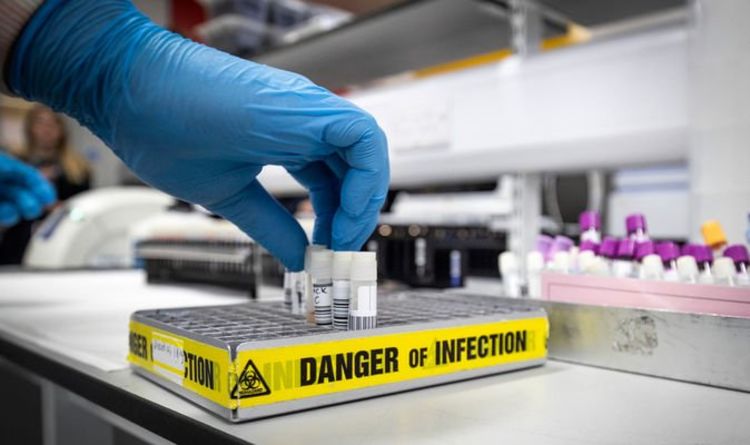CORONAVIRUS can potentially infect your heart, a disturbing new study into the deadly pandemic has revealed.
A landmark new study has revealed SARS-CoV-2, the virus behind Coronavirus (COVID-19), can infect heart cells in a lab dish. This suggests it may be possible for heart cells in COVID-19 patients to be directly infected by the virus.
[contfnewc]
The shock discovery was made using heart muscle cells produced by stem cell technology.[contfnewc]
Although many COVID-19 patients experience heart problems, the reasons remain unclear.
Pre-existing cardiac conditions or inflammation and oxygen deprivation resulting from the infection have all been implicated.
But there has until now been only limited evidence the SARS-CoV-2 virus directly infects the individual muscle cells of the heart.
Dr Arun Sharma, of the Governors Regenerative Medicine Institute and first author of the study, said: “We not only uncovered that these stem cell-derived heart cells are susceptible to infection by novel coronavirus, but that the virus can also quickly divide within the heart muscle cells.
“Even more significant, the infected heart cells showed changes in their ability to beat after 72 hours of infection.”
The study also demonstrated human stem cell-derived heart cells infected by SARS-CoV-2 change their gene expression profile.
This offers further confirmation the cells can be actively infected by the virus and activate innate cellular ‘defence mechanisms’ in an effort to help clear-out the virus.
While these findings are not a perfect replicate of what is happening in the human body, the news may help investigators use stem cell-derived heart cells as a screening platform to identify new antiviral compounds capable of preventing viral infection of the heart, according to senior and co-author Dr Clive Svendsen.
He said: “This viral pandemic is predominately defined by respiratory symptoms, but there are also cardiac complications, including arrhythmias, heart failure and viral myocarditis.”
The director of the Regenerative Medicine Institute and professor of Biomedical Sciences and Medicine added: “While this could be the result of massive inflammation in response to the virus, our data suggest the heart could also be directly affected by the virus in COVID-19.”
Researchers also found treatment with an ACE2 antibody was able to blunt viral replication on stem cell-derived heart cells.
This suggests the ACE2 receptor could be used by SARS-CoV-2 to enter human heart muscle cells.
Dr Sharma added: “By blocking the ACE2 protein with an antibody, the virus is not as easily able to bind to the ACE2 protein, and thus cannot easily enter the cell.
“This not only helps us understand the mechanisms of how this virus functions, but also suggests therapeutic approaches that could be used as a potential treatment for SARS-CoV-2 infection.”
The study used human induced pluripotent stem cells (iPSCs), a type of stem cell created in the lab from a person’s blood or skin cells.
IPSCs can make any cell type found in the body, each one carrying the DNA of the individual.
Tissue-specific cells created in this way are used for research and for creating and testing potential disease treatments.
Dr Eduardo Marbán, executive director of the Smidt Heart Institute, said: “This work illustrates the power of being able to study human tissue in a dish.
“It is plausible that direct infection of cardiac muscle cells may contribute to COVID-related heart disease.”
[contfnewc]
[contfnewc]
[contfnewc]























































